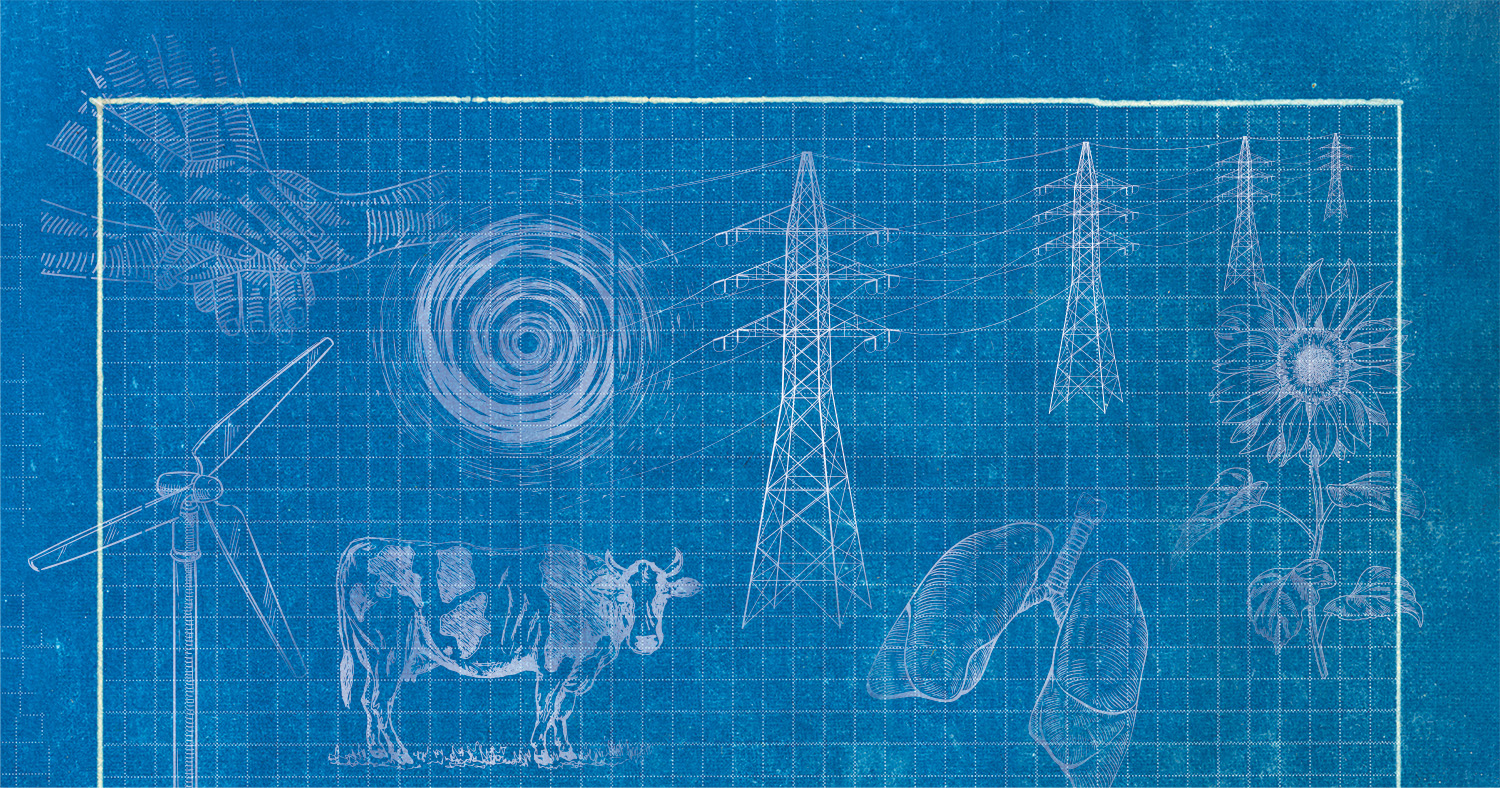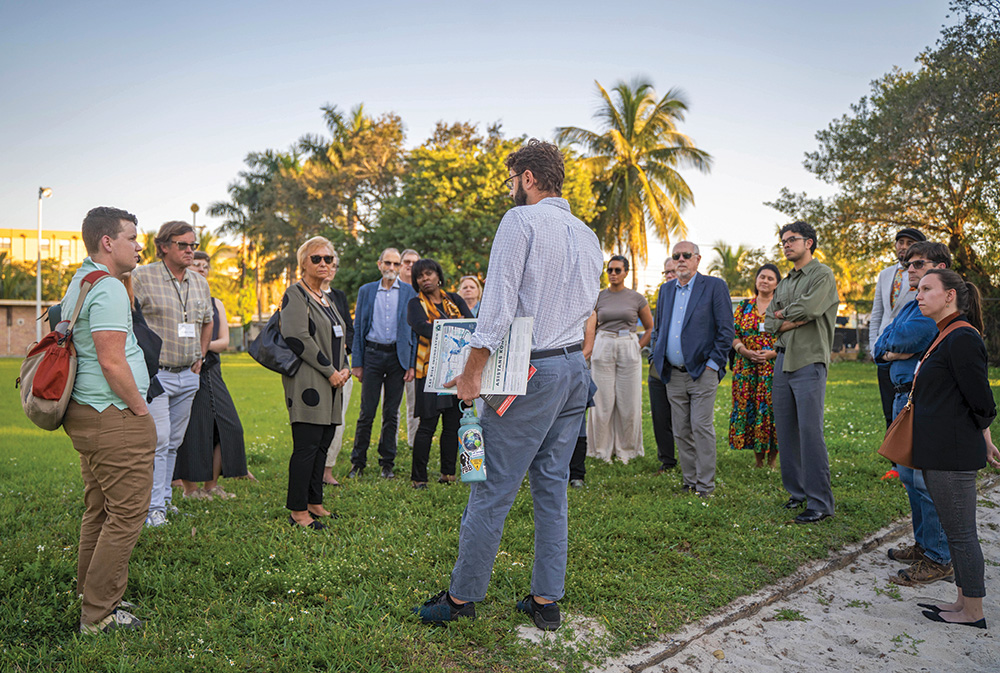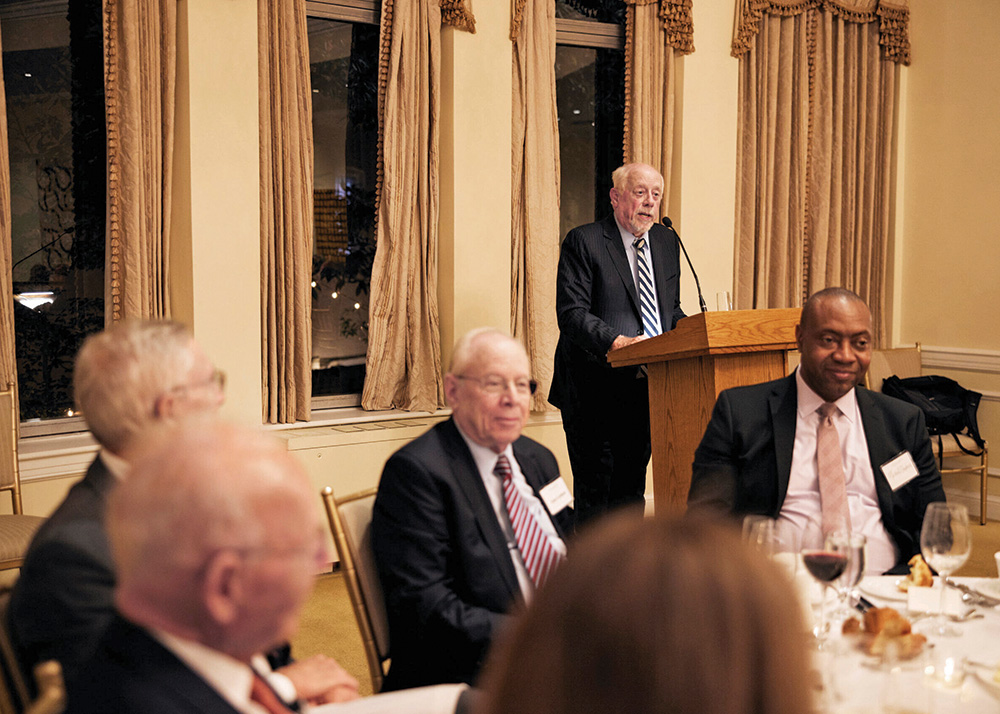By Kate Carter, Senior Program Officer for Science, Engineering, and Technology at the Academy
The conversation about climate change has evolved dramatically over the past three years. Since the Academy’s Board of Directors issued a public statement on climate change and the Academy’s Commission on Accelerating Climate Action began, public opinion and legislative measures have shifted toward more significant climate solutions.
The Academy started the Commission on Accelerating Climate Action at a time when the discussion in the media focused predominantly on elevating awareness and acceptance of climate change. While there will always be skeptics, there is now a growing agreement of the realities of climate change and a shift in public discourse about how to act. The Commission’s work began after a notable phase of federal inaction on climate change, and it concludes during the implementation of the Inflation Reduction Act, a landmark piece of climate legislation. Moreover, while more work is needed, there is a growing recognition among the private sector that climate mitigation and adaptation are necessary to remain competitive.
Though these promising outcomes feel new, they have been bolstered by decades of significant research and policy efforts across sectors. The sheer volume of climate research produced each week is overwhelming, making it nearly impossible to fully grasp the scope of the work. (Forging Climate Solutions, the final report from the Commission on Accelerating Climate Action, was released within a week or two of other major climate reports from the National Climate Assessment and the National Academies.) The knowledge base for effective climate action exists—if only policymakers knew where to look.
However, as often happens with multitudinous efforts, there was no unified plan for action across reports. One of the earliest problems that the Commission’s cochairs—Mustafa Santiago Ali (National Wildlife Federation), Christopher Field (Stanford University), David G. Victor (University of California, San Diego; Brookings Institution), and Patricia Vincent-Collawn (PNM Resources)—identified was the disjointed approach to climate policy that left meaningful efforts vulnerable to shifting political priorities. There was a need to reach across reports and expertise to construct a unified strategy that could help the country manage a climate response across sectors and locations. To meet this need, the Commission would have to establish a broad and durable coalition capable of transcending the labels that divide us to confront this existential threat, which will affect all of society.
That meant enlisting the help of one of the most interdisciplinary Commissions that have ever tackled climate issues. The only requirements for Commission membership were a belief in climate change and expertise in one of the numerous sectors impacted by its effects. From actors to activists, lawmakers to lawyers, energy executives to environmental justice advocates—all found their way onto the Commission. Though they held differing views on the problem and its solutions, they wanted to be a model for how cross-sector and bipartisan collaboration could affect climate action.
One of the earliest challenges for the Commission, therefore, was helping everyone learn to speak the same language. Coming from diverse backgrounds, Commission members initially struggled with differing definitions of terms like cooperation and environmental justice. However, through ongoing dialogue and keeping an open perspective, they were able to move past these differences. This process helped them realize that they shared core values, which were more significant than the varied words they used to express them.
To build bridges within shared content expertise, the Commission was divided across three working groups: one on understanding effective climate communication, a second on building private sector engagement, and a third on considering the national security implications for climate. These working groups engaged an even broader and more diverse range of experts to explore topics from how film and television discuss climate to discussions with military leaders regarding how their bases have led adaptation efforts. Another group convened private sector leaders with environmental justice experts to ask challenging questions about how businesses could adapt to climate change in a way that centers the needs of their local communities. The contributions of these working groups were essential in informing the Commission’s final report.
Given the diverse membership of the Commission, producing a consensus report was a challenging task. The five strategies and twenty-one recommendations survived multiple trials by fire during the Commission’s meetings. Those strategies and recommendations articulate a “fair bargain” on climate change: a roadmap for climate action that outlines how a whole-of-society commitment can emerge. It is surprising then that one of the report’s major strengths was that none of the Commission members were completely satisfied with it.
Since the report’s launch in October 2023, the Commission’s cochairs and members have been sharing the strategies and recommendations nationwide. They have convened discussions not only with audiences already engaged in climate action but also with those interested in learning more. The report found eager audiences at the American Geophysical Union, the Consortium on Climate and Health, and the Alaska Forum on the Environment. But the Commission was also able to enter spaces where climate is not frequently discussed. Commission members from the private sector spoke to energy executives at both the Edison Electric Institute Annual Conference and CERAWeek about the report and how to equitably prepare for climate change.
Applying the report’s interdisciplinary nature to spur equally interdisciplinary conversations, the Commission was able to bring together diverse audiences. In May 2024, the Commission organized a virtual panel discussion to connect environmental justice advocates with grantmakers who were already invested in climate change funding but had not yet considered the benefits of justice-focused philanthropy. The conversations focused on how a justice-centered approach to grantmaking addresses the disproportionate impact of climate change on marginalized communities and enhances the effectiveness and long-term impact of philanthropic investments.
Academy members provided valuable feedback and engaged with Commission members across various events, including the San Diego Program Committee’s program on “Inspiring Collective Climate Action in California and Beyond,” a Bay Area gathering about climate action, and an event on “Accelerating Climate Action Across America” hosted by the Houston Program Committee.
The Academy addresses society-level challenges that do not always have clear solutions. It is, therefore, rare and encouraging to see the progress that the Commission on Accelerating Climate Action was able to make over its relatively short lifespan. However, this incremental progress—though promising—is ultimately insufficient to meet the country’s needs to decarbonize and adapt. In May 2024, the Academy hosted an exploratory meeting on Climate and Security that drew upon some of the foundational work of the human and military security group to engage experts in the geopolitics of decarbonization and resilience-building. The Science, Engineering, and Technology program staff are planning additional member events and workshops to build on and continue the work of the Climate Commission.
To learn more about the Commission on Accelerating Climate Action and to read the report Forging Climate Solutions, please visit the Academy’s website.


